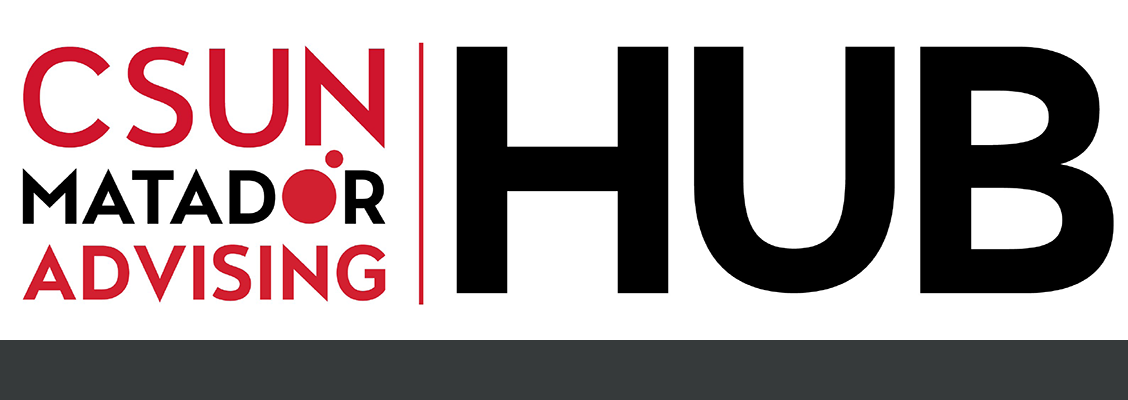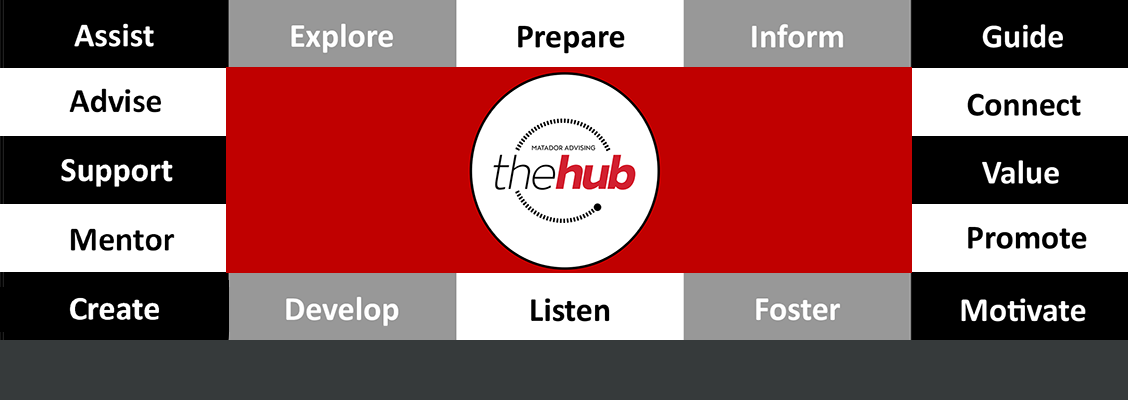“Exploratory” is the term used by the University for students who have not declared their major.
“Exploring” could be used to describe students who may be declared but are interested in exploring new options.
Exploratory Undergraduate students are strongly encouraged to declare a major by the time they have earned 45 units.
Exploratory students must declare a major by the time they have 60 units completed or they will have a registration hold on their account.
Please see the Declaring a Major policy in the CSUN catalog for more information.
Students can request to declare their major to a non-impacted major after they have completed their first semester. The change of major can be completed through your myNorthridge student portal. You can follow the steps on this how to guide.
Before declaring an impacted major, in either CTVA or Music, students are encouraged to speak with an Academic Advisor in the Matador Advising Hub. When ready to declare, students can follow the information below:
*Cinema Television and Arts (all options) & Music (audition required):
Students interested in changing their major to an impacted program must meet the impaction criteria listed below first:
- Earn at least 45 units
- Complete GE Basic Skills (A1-A3 & B4) with at least a “C-“ or better
- Maintain the minimum GPA, or higher, required for that admissions year
- Music majors must pass the audition and placement process. Students are encouraged to contact the department office as soon as they determine interest in the Music major.
1. I am not sure on my major, how do I decide?
Take general education classes in areas that interest you. Talk to professionals in the field you are exploring by conducting informational interviews, observing the work setting, volunteering or internships. Research major and career options by using the resources in the next section.
2. What if I choose a major and realize that I have made the wrong decision?
You might still be able to change your major after your initial selection. You can always consult with an advisor if you think you may want to change. Additionally, majors are often more flexible than people realize. Many graduates find that their majors give them many transferable skills and that people perform jobs with a variety of majors/backgrounds.
3. I feel overwhelmed with this decision.
Many students feel pressured when it comes to choosing their major. However, there are a lot of resources available to help you with this decision. Unsure where to start? Try meeting with the Career Center or going through our Hub Canvas Self-Guided Program.
4. I feel like I am wasting my time.
Many students work on general education classes in their first semesters. General education classes apply to all majors and can transfer from one program to another. If you have taken some major-specific courses and have changed your mind about your major, that’s ok too! Again, some of these will transfer to other majors or may be meeting general education as well. Even if they do not, many majors require additional units to reach a minimum for graduation.







